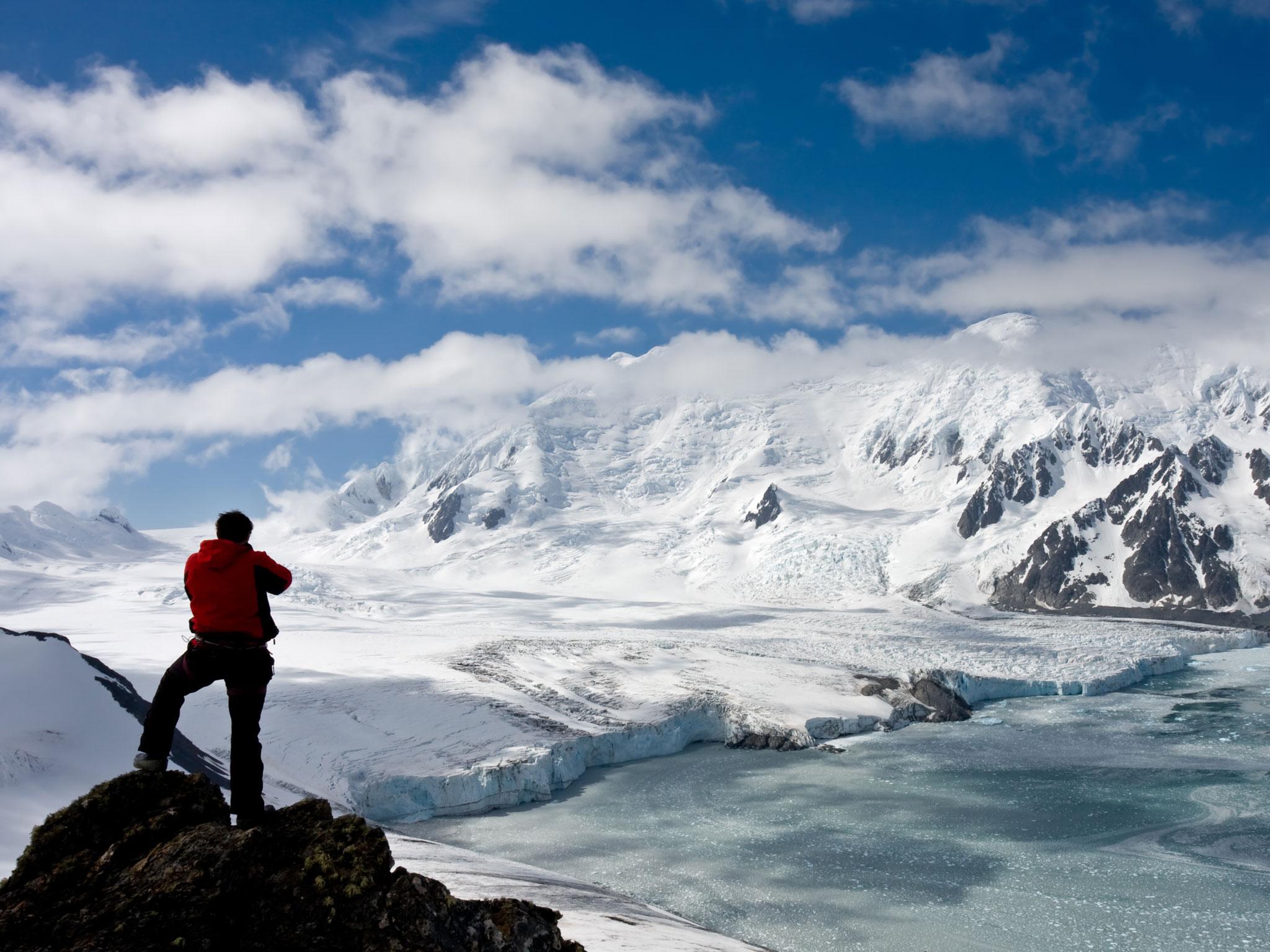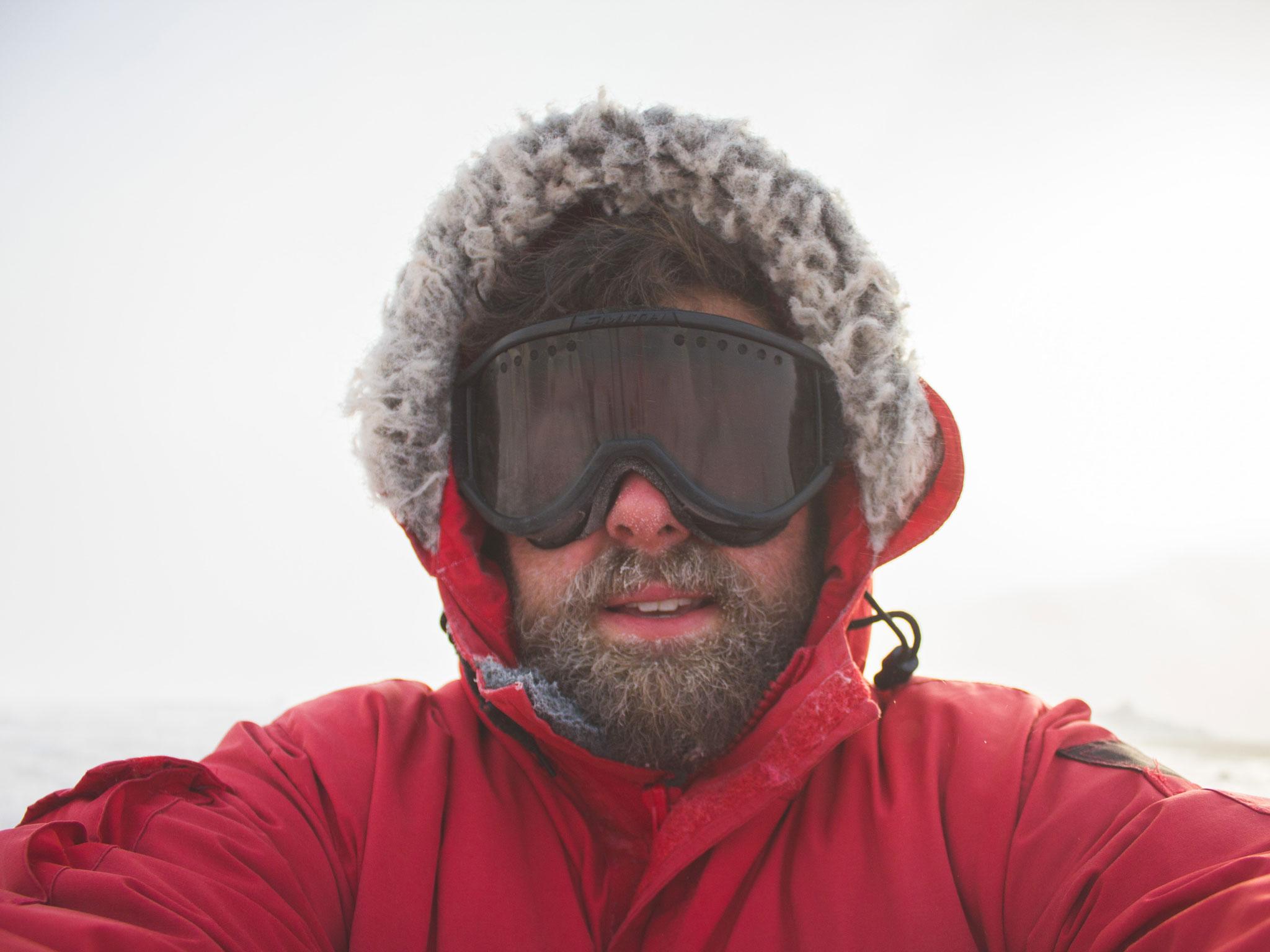What it’s like to work in the world’s most remote café – in Antarctica
Joel Witwer reflects on six months living in the frozen south

When travel junkie Joel Witwer scored a job at a cafeteria on Antarctica, he couldn’t believe his luck.
Witwer had been determined to visit every continent before he reached 30. Antarctica struck him as harsh, desolate and hostile to human life – and it only made him more desperate to visit.
“It’s the most isolated continent in the world, with zero permanent residents,” Witwer told The Independent. “It was a place I had no reason to be, but one I so desperately wanted to experience. It was never intended to sustain human life – so to be there for a season, to live in those conditions, felt like I’d got the chance to be the sort of pioneer or explorer I’ve read so many stories about.”
Now 28 and working as a photographer for an international aid organisation in Niamey, Niger, Witwer was born in the US, but grew up in Ireland and has been travelling for most of his adult life.
As he neared the age of 27, he’d already lived in Europe, visited Asia and was about to start studying abroad in New Zealand. But he realised he was quickly nearing his deadline to reach the world’s most inhospitable continent.
Then he stumbled upon the United States Antarctic Program (USAP) at McMurdo, one of the nation’s research stations in the Great White South. After scoring a job at the cafeteria there, Witwer swapped the comfort of suburban Rochester, New York, to live in a dorm for six months with scientists and contractors, whose jobs ranged between everything from carpentry to fire-fighting. In September 2015, he landed on the icy tundra via a military Boeing C-17.
For the first handful of weeks, the sun only set for a few hours a day. But by December – the Antarctic summer – the sun stopped going down all together. Nothing could prepare Witwer for what he described as the “sheer whiteness of the place”.
“I lived in the northern US for many years so I was used to snow, but not flat fields of white as far as the eye can see. Jagged white peaks lined the horizon. Everything was greyscale. Stepping off that plane for the first time felt like stepping onto a different planet. I was not prepared for the enormity of it all.”
What he had feared most, however, was the sense of isolation.
“The base is home to about 1,000 people during the summer months, but knowing there is no other form of civilisation close by can be daunting,” Witwer said.

“This is something they address during the job interview, as it is never ideal for someone to have to leave the ice before the end of their contract.”
To ensure Witwer and his colleagues would be up to the challenge of six months in Antarctica, his employers stressed that normal comforts – like nipping away for a weekend break – would be impossible. McMurdo would be everything they knew for 24 weeks.
However, as Witwer settled in, he was surprised to find he didn’t feel lonely. “There was this awareness that we were isolated from the veins of humanity,” he says, “but the community down there is close-knit and looks after each other. You are not alone.”
Working six days a week for 10 hours a day, as he was obliged to do, helped. And he didn’t exactly have to deal with the same kind of hardships suffered by polar explorers like Ernest Shackleton. His spare time was divided between the gym, two pubs and the coffee house at the base.
Volunteers would also organise activities including language lessons, CrossFit sessions, and snowmobile excursions to ice caves. And each year, McMurdo residents hold an “IceStock” music festival, where bands that formed earlier in the season get to play to a captive audience.
Plus, Witwer was fortunate enough to be there in summer. The temperature hovered around the 0C mark, and, according to him, “it was at times warmer than Rochester”. The USAP also provides everyone on base with extreme cold weather gear.
“I imagine a winter contract would be much more challenging both mentally and physically,” he said. “The McMurdo population plunges to around 200 during the winter and the cold is much more bitter, with regular, raging storms.”
As the months rolled on, Witwer says it became clear to him that Antarctica attracts a certain type of adventurer: “They are avid travellers looking to buck convention.”
He said there was an even split between men and women and that most tended to be in their thirties. “A lot of them will work hard over the length of their contract, save up all their money, and then spend the off-season travelling the world.
“They like to dream big and aren’t afraid to think outside of what mainstream culture tells us to do. I used to think of myself as rather adventurous and creative until I met these people. Now I realise I’m only getting started.”
But Witwer says he would recommend visiting Antarctica to anyone for the “sheer, vast freedom” of a continent unmarred by human presence.
“When you are in the middle of it, the continent seems endless in every direction,” he said. “It is easy to forget that life outside exists. But, for me, it’s the thrilling combination of fear and beauty that elevates the place.”
For travellers planning on heading there, Witwer urges they do so responsibly. “With the growing interest in Antarctic tourism comes the growing human impact on the continent,” he added.
“Consider how your presence there will impact the environment. Find a company that will allow you to explore the wonders there in a responsible way that preserves it for those who follow.”
Join our commenting forum
Join thought-provoking conversations, follow other Independent readers and see their replies
Comments
Bookmark popover
Removed from bookmarks